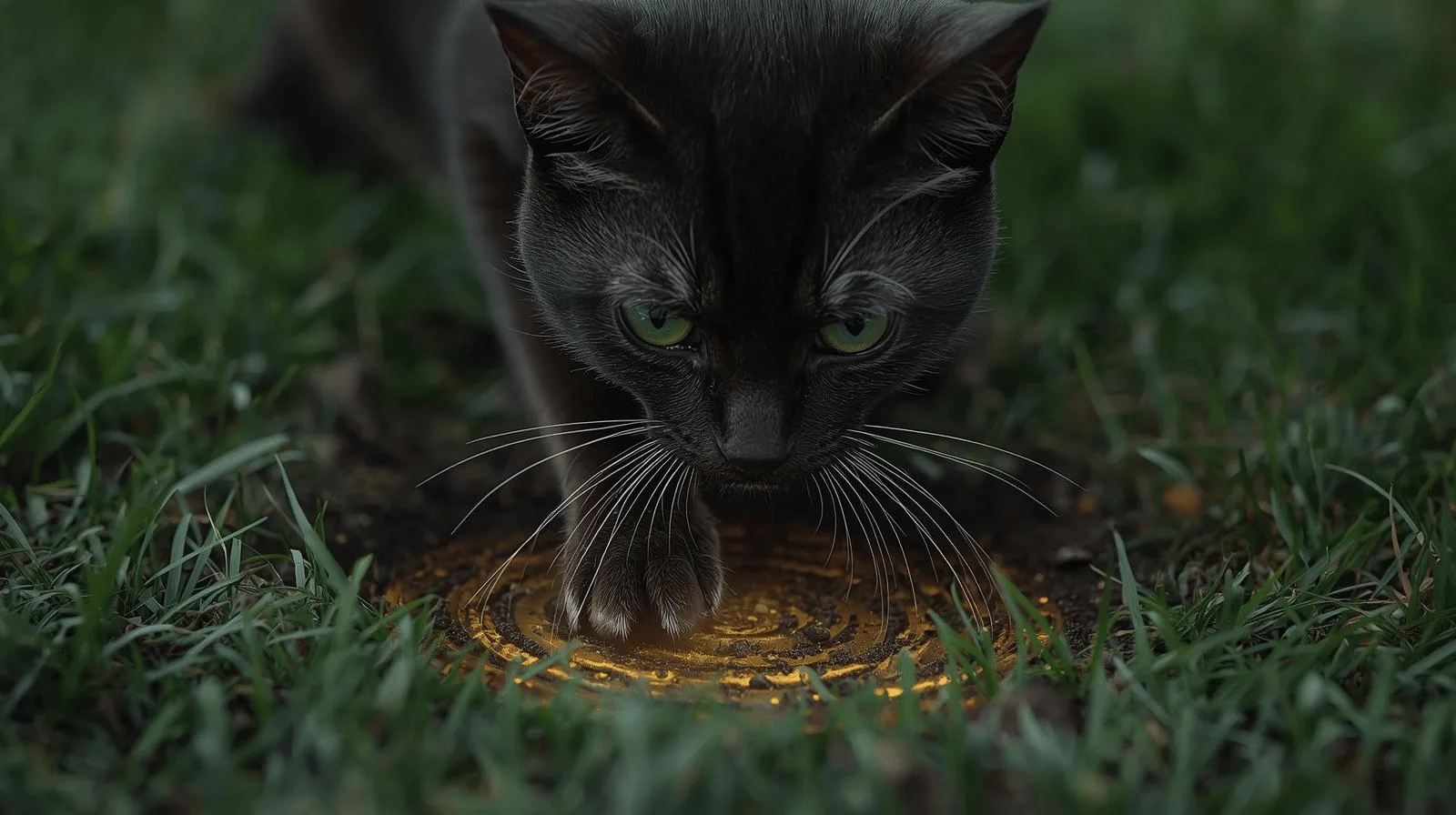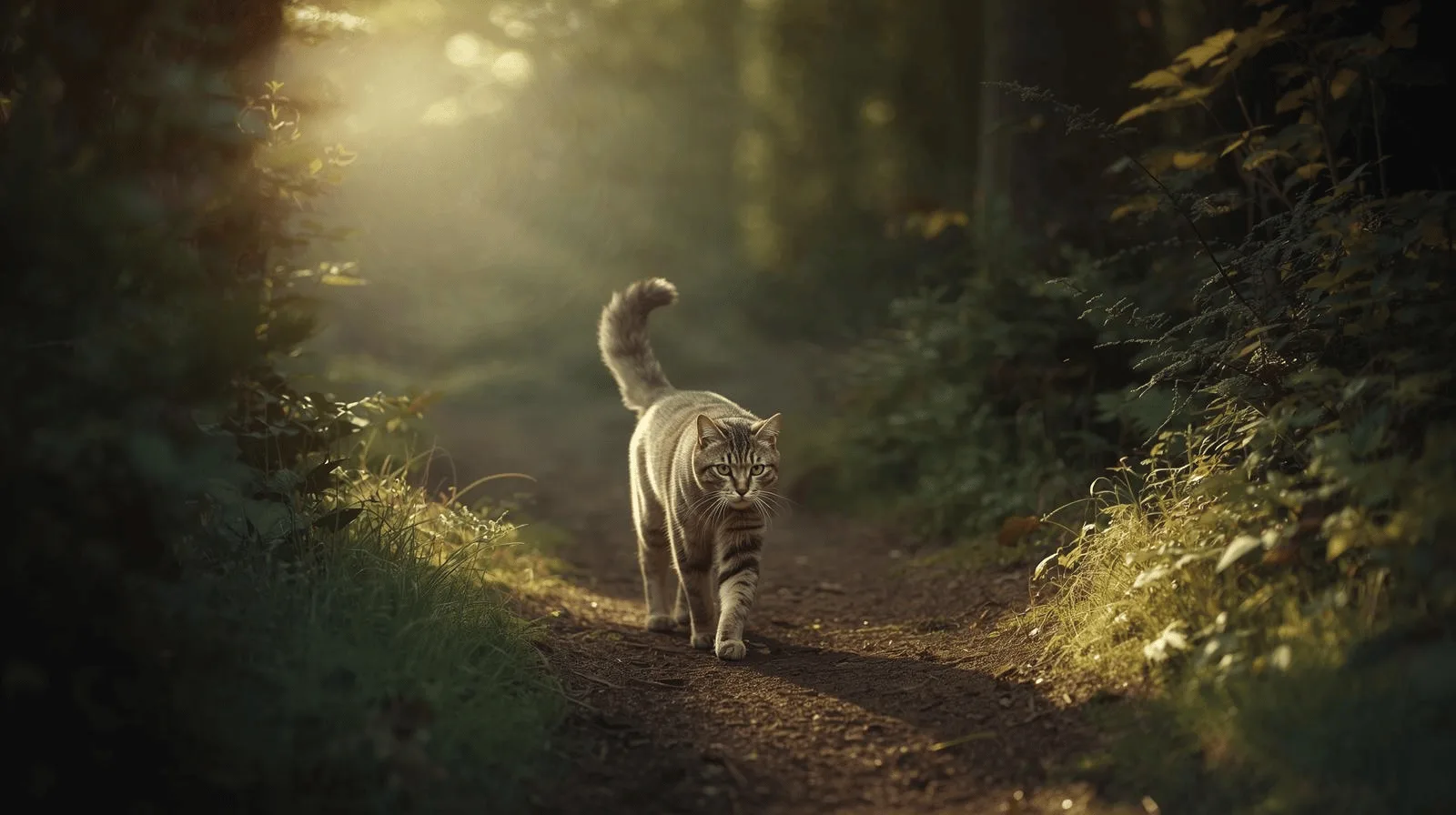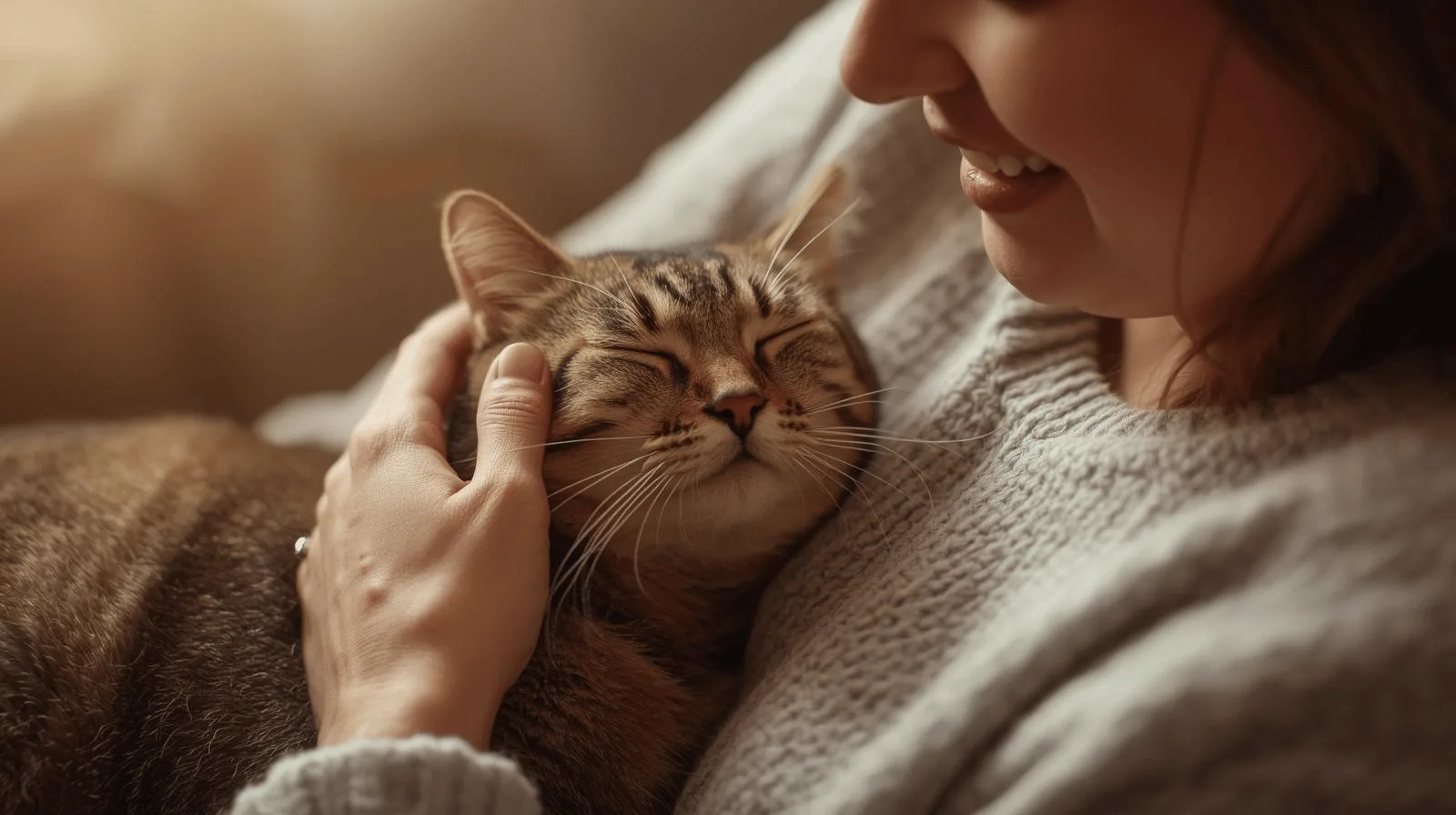Cats have long been surrounded by mystery. Ancient civilizations saw them as divine protectors, while folklore painted them as magical creatures capable of sensing the unseen.
Science tells us that much of what seems supernatural about cats actually comes from their highly evolved biology.
Why Cats Seem So Mysterious
Before exploring the specific senses, it’s worth understanding why cats strike us as mysterious in the first place. Their behaviors often appear unpredictable, but science shows there are evolutionary reasons behind their quirks.
Evolution Shaped Their Superpowers
Cats are ambush hunters. To succeed, they needed heightened senses to detect prey while avoiding danger. Over thousands of years, their bodies adapted with features that might seem bizarre to us but are perfectly logical for survival.
Human Perceptions Add to the Mystery
Throughout history, humans projected mystical qualities onto cats. From guardians of temples in ancient Egypt to symbols of witchcraft in medieval Europe, cats have always carried an aura of mystery.
1. Cats Can Detect Vibrations in the Earth

Cats are experts at picking up vibrations, both through their sensitive whiskers and their paw pads.
Whisker Sensitivity
A cat’s whiskers are deeply embedded in nerves and blood vessels, making them highly responsive to air currents and surface vibrations. This helps them sense movement even when prey is hidden.
Earthquake Awareness
There are countless stories of cats acting restless before earthquakes. Scientists believe cats may sense seismic vibrations humans can’t detect, essentially giving them an early-warning system.
2. Cats See in Ultraviolet Light
Unlike humans, cats can see in Ultraviolet (UV) ranges. This opens up a part of the visual spectrum invisible to us.
UV Vision in Action
With UV vision, cats can track urine trails of prey, spot patterns on plants, and notice markings invisible to humans. What looks like “staring at nothing” might actually be your cat watching something glowing in UV.
Nighttime Advantage
This ability makes cats even more skilled night time hunters, since many animals leave UV-reflective cues in their environment.
3. Cats Have a Built-In Compass

Cats often find their way home from miles away, and scientists believe magnetoreception — sensitivity to Earth’s magnetic fields — plays a role.
Homing Instincts
Cats have been documented traveling incredible distances back to their owners. While scent and memory help, magnetoreception likely acts like an internal GPS system.
Why It Matters in the Wild
This “compass sense” would have been essential for wild cats roaming large territories without getting lost.
4. Cats Hear Ultrasonic Sounds
Cats’ hearing far surpasses human limits, reaching up to 65 kHz — more than three times our maximum.
Hunting Benefits
Rodents communicate in ultrasonic squeaks, and cats can pick them up easily. This makes them formidable hunters even when prey is out of sight.
Household Sensitivity
Cats sometimes react to electronics or appliances that seem silent to us, because they can hear ultrasonic frequencies we simply can’t.
Related Posts
- Why Does My Cat Lick Me Then Bite Me? 9 Fascinating Reasons
- Why Your Cat Follows You Everywhere: 7 Reasons Explained
- What Is Catnip? History, Science, and Why Cats Love It
- Why Do Cats Cry Like Babies at Night? 6 Surprising Reasons
5. Cats Sense Your Emotions
Despite their reputation for independence, cats are remarkably attuned to human emotions.
Recognizing Cues
Studies show cats can interpret tone of voice, facial expressions, and subtle body language. They often become more affectionate when owners are stressed or sad.
Emotional Bonding
This ability to sense emotions strengthens the human-cat relationship, making them supportive companions in ways we may not even notice.
6. Cats Detect Illness and Body Changes

Many cat owners report their pets behaving differently when they’re unwell — and science provides some clues as to why.
Smelling the Invisible
Cats’ sense of smell is around 14 times stronger than ours. They may pick up on chemical changes in our bodies caused by illnesses like infections, diabetes, or even cancer.
Anecdotes Backed by Research
Though more research is needed, stories of cats alerting their owners to medical problems suggest they may possess a health-detection ability similar to that of trained medical dogs.
7. Cats Have an Internal Barometer
Cats are often said to predict weather changes — and science supports this claim.
Detecting Pressure Shifts
Their acute senses allow them to notice changes in barometric pressure, humidity, and static electricity long before humans do.
Weather-Ready Instincts
Before a thunderstorm, cats may hide or pace restlessly. In the wild, this sense could help them avoid floods, storms, or other dangers.
What This Means for Cat Owners

Understanding your cat’s senses can make you a better caregiver and deepen your bond.
Improving Daily Life
If your cat reacts to things you can’t perceive — like ultrasonic sounds or pressure changes — it may not be “weird” at all. Respecting these sensitivities can make their environment calmer and more comfortable.
Building Stronger Bonds
When you recognize that your cat senses your mood, detects changes in your body, or even feels a storm approaching, you realize they’re not just pets — they’re finely tuned companions. Appreciating their sensory world helps you connect with them on a deeper level.
Conclusion
Cats aren’t just quirky pets; they are extraordinary creatures with senses that often surpass human comprehension. From predicting storms to seeing ultraviolet light, their abilities may seem magical but are deeply rooted in biology.
For those curious about the science behind animal senses, the National Institutes of Health offers excellent resources on comparative biology.
Frequently Asked Questions
Can cats really sense earthquakes?
Yes, cats can detect seismic vibrations through their whiskers and paws, which makes them react before humans notice.
Why do cats sometimes stare at nothing?
Cats may see ultraviolet light or hear ultrasonic sounds invisible to us, so they aren’t really staring at “nothing.”
Do cats know when you are sad or stressed?
Research shows cats pick up on tone, body language, and facial expressions, often responding with more affection.
Can cats detect illness in humans?
Cats have a powerful sense of smell and may notice chemical changes in the body linked to illness or disease.
Why do cats act weird before storms?
They sense shifts in barometric pressure and static electricity, which trigger unusual behaviours before bad weather.


1 thought on “7 Strange Cat Senses Explained by Science”